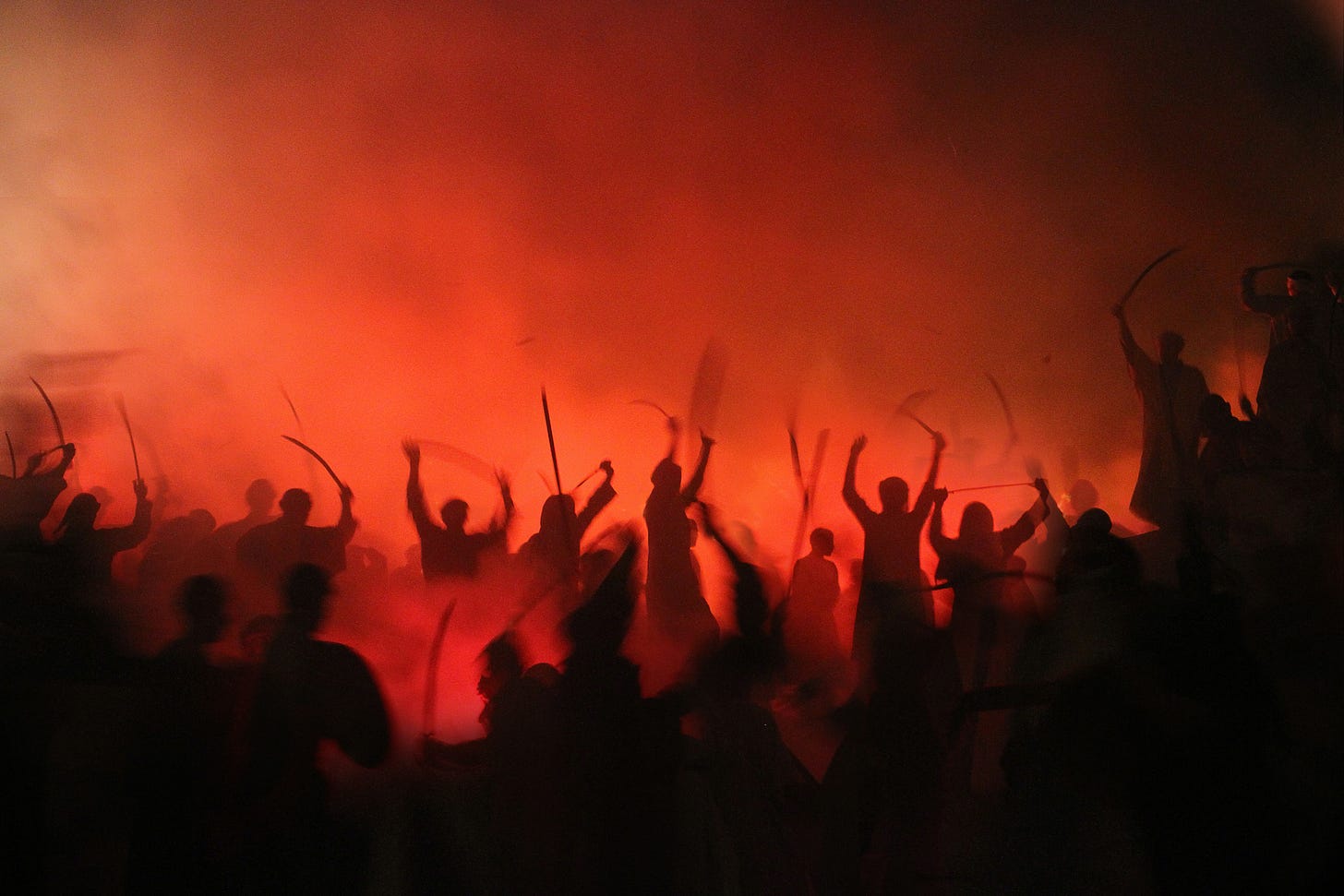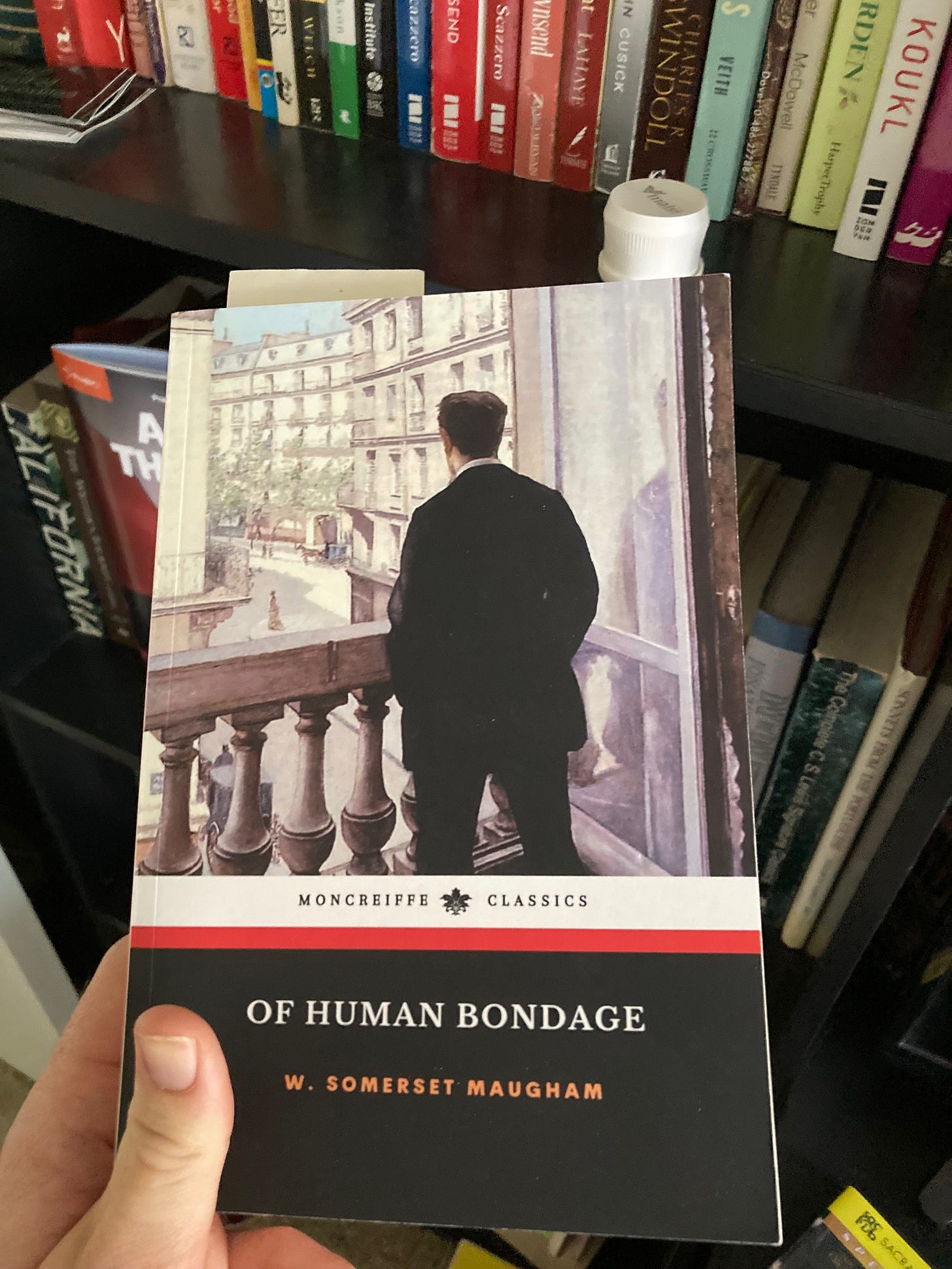The Pond Overfloweth
"Very well then. I too, am a Jew."
Not long after Nine Eleven, (America’s, not October 7th, which many are already calling ‘Israel’s Nine Eleven’), Theodore Dalrymple published ‘What We Have to Lose,’ an essay on civilization and its hydra-headed opposites.
Dalrymple defines things broadly, but with a clear enough picture.
By civilization, he means the living, breathing, total of human effort at a particular place and time. Cultural activity, tradition and history, social interaction, commerce, infrastructure and affluence—everything, he intones, worth living and striving for. Broadly, but not spiritually speaking, he’s right. Where cooperation, rule of law, fruitful work, and shared language, customs, and traditions overlap, you find civilization of some kind.
Behind all that, and stretching from into the distant past, you find dreary regressions that should make anyone with a smartphone shudder.
War. Slavery. Illiteracy. Recurring famine. Real plagues (Covid was child’s play) that mow down millions in a span of months. Sky-high mortality rates for children and women giving birth. Thomas Hobbes’ overused description of life being ‘solitary, poor, nasty, brutish, short’ is not a bad summary.
On a Lighter Note, and before going into Israel
…if this particular rabbit hole isn’t your cup of tea, scroll down for D.T. Adams. He’s got some thoughtful, history-minded takes on Halloween cryptids.
Spooky.

The Life Barbaric
Dalrymple is an atheist, but not a prudish one; he acknowledges Christianity and Judaism, with their outsized roles in Western history, in that overlap. But with his attention turned more to the carnage of the Twentieth Century (World War II, the Holocaust, Communism), he rightly asserts that a civilization worth living in exists only on a razor-thin margin.
Beyond that margin, and perhaps more frightening than everything Hobbes describes, lies barbaric violence.
Like its less brazen cousins, this regression is nothing new. Not long after Cain murders Abel, Genesis, chapter 6 describes the earth as ‘full of wickedness and violence’—so much so that God finds the place in need of a good, earth-covering bath.
That barbaric violence has, in the immediate though perhaps not the aggregate, a smaller blast radius than a famine, a plague, or a nuclear blast, it doesn’t take that much of it to demand our attention. In this respect, one lesson from the massacre in Israel is a familiar one—beyond civilization (and in same cases, directly beyond a border wall) lies a chilling abyss. A Nine Eleven, an October 7th, the creative violence of drug cartels, or the casual murder of Czar Nicholas II and his family by Bolsheviks throw a spotlight on it.
To hear continual reports of how Hamas militants tortured women and children for being Jewish before killing them (there’s no doubt because they documented themselves with social media) reminds us how far down, and how nauseatingly fast the chasm drops. In yet another essay, Dalrymple—writing as a prison doctor who treated thousands of patients from Britain’s festering, fatherless underclass—puts it another way: ‘the frivolity of evil.’
If you find yourself shaken, or avoiding the news altogether, you can hardly be blamed.
In the Memetime
On ‘Keep Calm and Carry On’
But if you’re rightly horrified and unable to look away, you’re not alone. Numbness and horror are not without a kind of existential thrill. Joseph Conrad (or at least my AP Literature teacher paraphrasing Conrad), called it the fascination of the abomination. In the same vein as the sublime, the shocking and unfathomable splits perspective into before and after, upending the boundaries of what we know about life. If we’re not careful, and in the glare of barbaric regression, the mundane grows pathetic, lifeless, unimportant.
Dalrymple himself calls this out. Recalling the days and hours after hearing the news from lower Manhattan, he admits how difficult it was to finish a book review.
“So it was when I first learned of the destruction of the two towers of the World Trade Center. I was settling down to write a book review: not of a great work, but of a competent, conscientious, slightly dull biography of a minor historical figure. Could any activity have been less important when set beside the horrible fate of thousands of people trapped in the then flaming—and soon collapsing—buildings? A book review, compared to the deaths of over 300 firemen killed in the course of their duty, to say nothing of the thousands of others? What was the point of finishing so laboriously insignificant a task as mine?”1
His point isn’t that we should stop our lives completely.
Or resume them without skipping a beat.
Rather, it’s that the day-to-day, hour-to-hour bathos following a Nine Eleven, an earthquake, or a smaller-scale Holocaust reenactment that makes Latin America’s creatively violent drug cartels look like amateurs, is to be wrestled and overcome.
But not, as he notes, without perspective:
“Whenever I read something about the Khmer Rouge, for example, or the genocide in Rwanda, I reflect for a time upon my own life and dwell a little on the insignificance of my efforts, the selfishness of my concerns, the narrowness of my sympathies.”2
As the IDF gears up for a ground offensive that (we can only pray), limits civilian casualties and rescues hostages, more news will follow.
But in short, we shouldn’t stop mowing the lawn because butchers, college students, and cheering populations around the world want, as Michael Caine in The Dark Knight puts it, ‘to watch the world burn.’
Or more accurately, to watch Jews and Israel burn.
All this to say, peeling myself away to pen this intro was difficult… as much due to my browsing habits as to soul-searching. I also started a full-time, in-person job, with a full-time commute through West Los Angeles, so there’s that. Mentioning that geography, I should also mention that my commute crawls right by the L.A. Federal Building, cornered by Wilshire and Veteran Boulevard.
On Sunday the 8th, I stood at those street corners with a few hundred others. Young, American Jews, defiant and unafraid, waved the Star of David and the American flag at passing cars.
Car after car honked back, rousing everyone’s spirit on an unusually bitter day.
Very Well Then…
In a short story by John Biguenet, a middle-aged man stumbles across a band of pack Neo-Nazis at a German cemetery. Mocking him, they threaten violence, but he saves himself by repeating ‘I am not a Jew. I am not a Jew.’
After they let him go, and regardless of the fact that World War II and the Holocaust have long been over, the man’s guilt grows like a weed. His confidence lags. A warm sex life with his wife grows cold. At the story’s conclusion, he confronts her, insisting that he was only telling the truth—after all, he is not Jewish.
She corrects him:
“We are all Jews. After Hitler. What choice do we have? We have to be Jews, all of us.”
In case these things need spelling out—and in the age of fringy, anti-globalist conservatives shrugging this off as someone else’s problem, (or even worse, insisting Mossad’s intelligence failure is really some Zionist plot to annex Gaza) it does need spelling out…
-There is no moral equivalence between Israel and Hamas.
-Israel—not some unrealized Palestinian state that terrorizes its neighbor and has rejected offers of formal statehood time and time again—has a right to exist.
-Its citizens should live in safety.
-For the sake of some 1,500 innocent victims and its own national sovereignty, Israel is justified in toppling Hamas, occupying Gaza, and ensuring that this never happens again through regime change.
-Israel prefers peace. The music festival (ironically enough) that saw some 250 young people slaughtered near the Gaza border was peace-themed. More than that Israel has it offered it again and again, and not just since withdrawing from Gaza in 2005.
-Asymmetries and civilian casualties will be tragic, heart-breaking, and perhaps inevitable; but barring some atrocious act of revenge by Israeli soldiers (as Doug Wilson points out, those perpetrators would be promptly prosecuted)—said casualties are on Hamas.
Hamas dresses militants like civilians, uses civilians as pawns, and has already blocked roads to stop them from evacuating.
-Hamas’s charter, like Hezbollah’s, calls for the destruction of Israel.
-Last, and furthermore, Hamas’s grievances are, much like those of climate alarmists, manufactured. What other country enjoyed a decades-long supply of water, power, and food supplies from a neighbor it terrorizes? To name just one historical fact, some 150,000 Palestinian Arabs who stayed during Israel’s founding, rather than fleeing the area received full citizenship3. No multiethnic society is perfect, but many still live there; Arabs serve proudly in the Israeli military.
Finally, Jew-hatred, oozing up through the ages and massing new, youthful adherents in London, New York, Sydney, and elsewhere, is as old as sin—and sadly, a shiny new toy for Christian Nationalists like Andrew Torba (as if we needed a hundred and first reason to move on from that label).
So there’s that.
And if saying all of this makes one a Zionist, then fair enough. In the words of gentile Douglas Murray, “Very well then, I too, am an Israeli. I too am a Jew.”
Having said all that, I realize that a subscriber / supporter or two might see this as a bridge too far. Disagree, comment, and unsubscribe if you must—no hard feelings.
But when evil of this caliber raises wins this much applause, it’s time to oppose it.
Speaking of backbone, if not now, when?
As Israel faces no good options, and a hellish, drawn-out offensive to extricate Hamas (surrender and appeasement will get more citizens killed) and try to rescue hostages, it needs clear, unwavering support from the civilized world. After the spilled blood dries and the respectable types start cringing at the collateral damage, will the civilized world understand what it takes to defend itself? Not that long ago, and even with countless civilians perishing alongside Nazi soldiers, we Allies kept going.
That’s not to say Israel cannot be criticized, or to give it’s 300,000 strong reservists carte blanche for atrocities in return.
But when the going gets messy, and even as Israel fights without sinking to Hamas’s cowardly level, I imagine most will waiver. Hamas is counting on this—it would rather see the entire population of Gaza wiped out before surrendering to Jews and facing what it’s done.
More broadly, and against a fallen, James 4:1-10 world, one must pray and hope for better—as Alexander Pope once wrote, hope springs eternal. At the same time, evil must be fought, vanquished, and if possible, humiliated.
When the Son of Man returns, we’ll see hope manifest. Indeed, all wars and skirmishes will cease. But in the meantime, and however vogue the calls for ‘decolonization’ here at home, civilization anywhere is nothing to scoff at. However this debacle goes, huge swaths of the still civilized, (if anemic and desperately Christ-needing) world will feel the consequences. Unless we stand and fight, Holocaust after Holocaust will happen again.
I, too, though Christian, am a Jew.

On the Paranormal, Supernatural, and Just Plain Weird
by D.T. Adams
It’s October, which means it’s the time of year when ghoulish and violent lawn displays get a free pass. Although I have no particular hard feelings against Halloween itself, I find the ever-increasing obsession with violence off-putting. However, this time of year does provide many opportunities to explore the more strange and unusual parts of our worldview, what one theologian has called the “deep weird.”
Whether you like demonology, angelogy, and discussions about the nephilim (a la Michael Heiser) or sasquatch, UFO, and Mothman accounts (a la Haunted Cosmos), now’s the time of year everyone lets themselves theorize about what might be beyond the visible world.
Just for fun, let’s take a look at some of the common ones I’ve noticed around as I’ve dipped my toes into the paranormal space.
Sasquatch - A classic American folk legend, Sasquatch (or bigfoot, depending on your level of seriousness with the subject) seems to have only gained believers over the last few years. While I’m not sure if it’s because, at this point, Americans will believe just about anything, or if there is actually enough evidence piling up that we can reasonably assume that something is out there, there does seem to be a growing number of people who are at least less sure about the whole business than they were previously. Demon? Spiritual being? Some undiscovered primate? Who knows. But we do know that we don’t know everything, so any of it seems possible.
UFO/Alien encounters - This topic has exploded in popularity recently due to the U.S. government hearings on Unidentified Aerial Phenomena (UAPs). While what the government did or did not confirm is still up in the air (sorry, I couldn’t help myself), the speculations have become more mainstream. Looking into different sightings and experiences people claim to have had gives one an eerie feeling because of the consistency of reports, which has led some to say “alien” encounters aren’t encounters with aliens at all but are encounters with spiritual beings that are trying to deceive people.
Mothman - The series of events surrounding Mothman sightings, all leading up to the collapse of the Silver Bridge over the Ohio river, were not something I’d heard about until recently. It’s eerie how much turmoil there was in the area leading up to the bridge collapse and how suddenly it all seems to have gone away afterward. If you have any interest in these sorts of things, the Mothman stories are definitely worth checking out.
I’ll admit, I’m a little out of my depth on this topic. That being said, this time of year has cryptids on my mind.
But what do you think?
Are there naturalistic explanations for all so-called paranormal events? Or are there explanations beyond the visible world for some of them?
Poll or leave a comment—here on the pond we love to hear from you.
Still Coming Up…
This one’s in my target sights.
As always, thank you for reading, sharing, forwarding to a friend…
The crocodiles just loooooove a shout on social media.
Dalrymple, Theodore. City Journal: https://www.city-journal.org/article/what-we-have-to-lose
Dalrymple, Theodore. City Journal: https://www.city-journal.org/article/what-we-have-to-lose
For more on this, see ‘The Case for Israel’ by Alan Dershowitz, or ‘From Time Immemorial’ by journalist Joan Peters.









